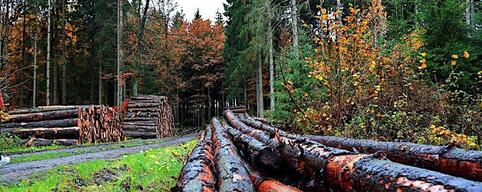

A conflict is unfolding on the border between Poland and Belarus over a border-strengthening project. Polish authorities are actively cutting down trees to make the new electronic fence work, which has sparked a wave of discontent from local residents and landowners.
Landowners whose plots and land have been affected by the felling emphasize that they were not properly informed about the details of the upcoming work. They express concern that these actions could damage the tourist attractiveness of the region. After all, it is the natural beauty of the area that has attracted numerous tourists and travelers from all over Europe.
The fence work involves the installation of 4,500 cameras along the nearly 172-kilometer-long border. These cameras have the ability to work at night and in unfavorable weather conditions, which ensures round-the-clock surveillance of the territory. By design, the system is supposed to automatically record any attempts at illegal border crossings and respond quickly to incidents. The system is designed to automatically detect any attempts to cross the border illegally and respond quickly to incidents.
While Polish officials emphasize that such measures are necessary to ensure national security, critics of the project question the actual need for such an active intervention in the natural ecology of the region.
Among other things, this situation raises an important question about the relationship between the state and local communities. The need for border protection and security is certainly important, but how can these interests be better balanced with the rights and needs of local residents? This issue is currently under active discussion between the parties, and a possible solution has yet to be found. The situation raises an important question about the relationship between the state and local communities.



